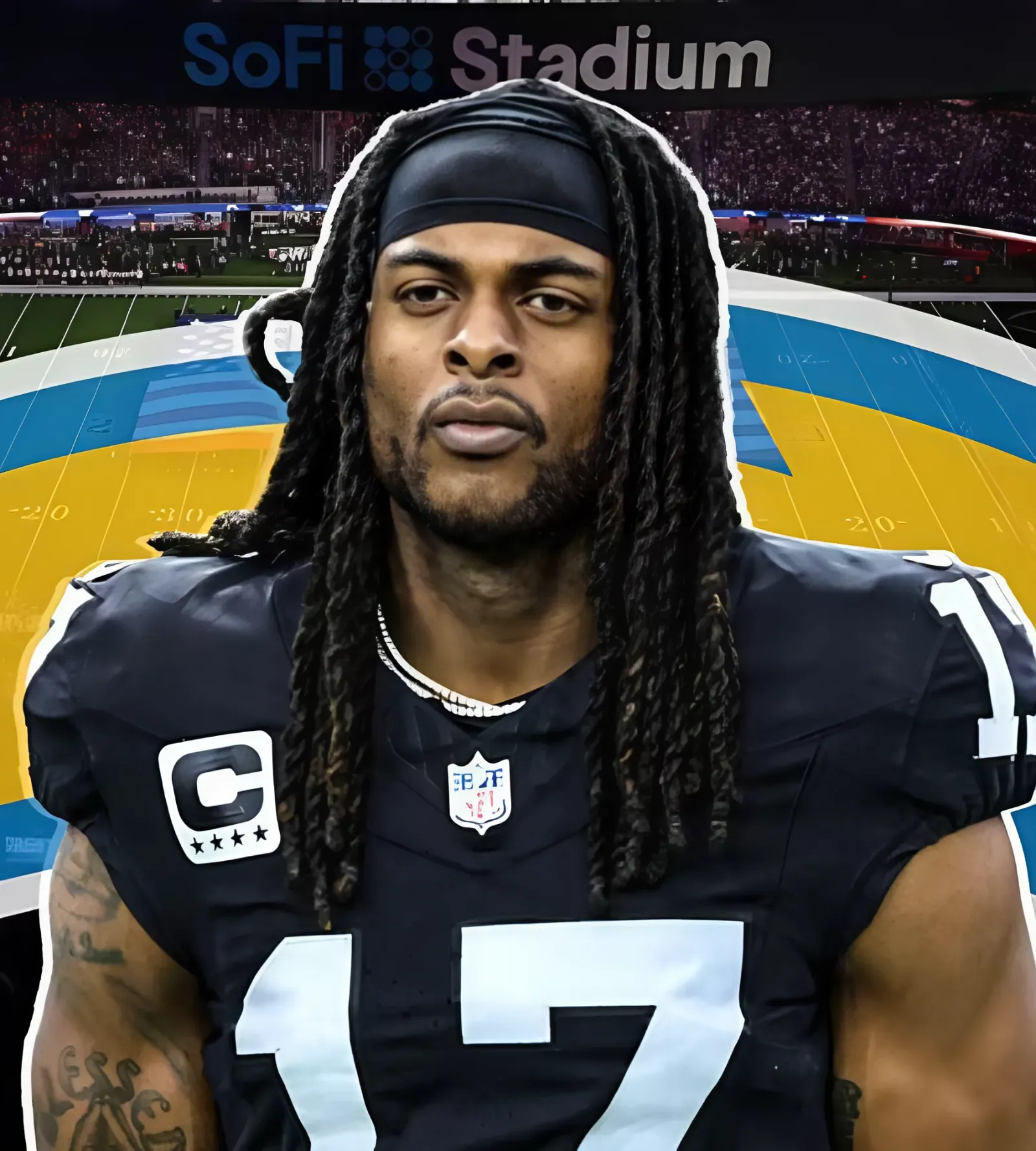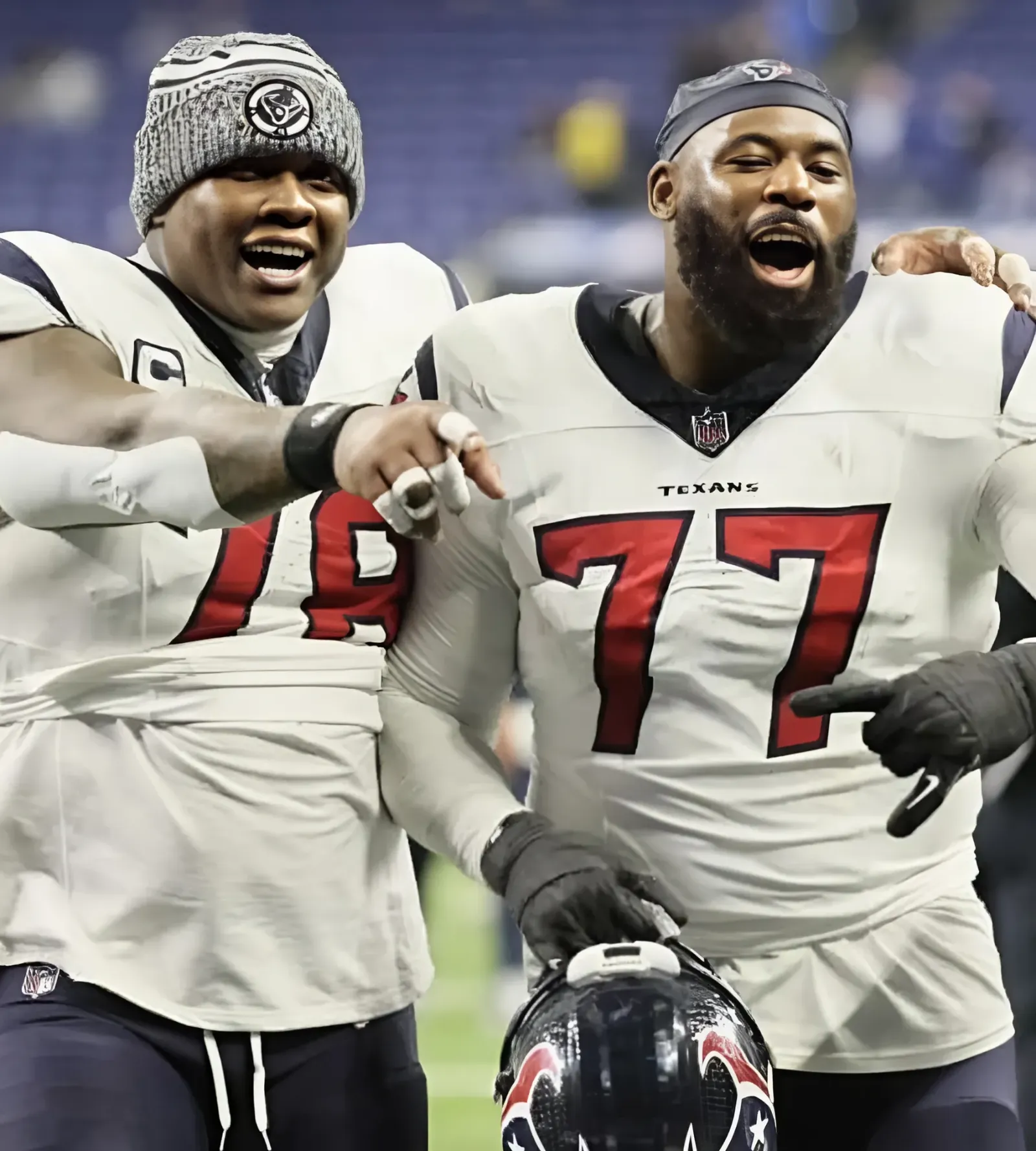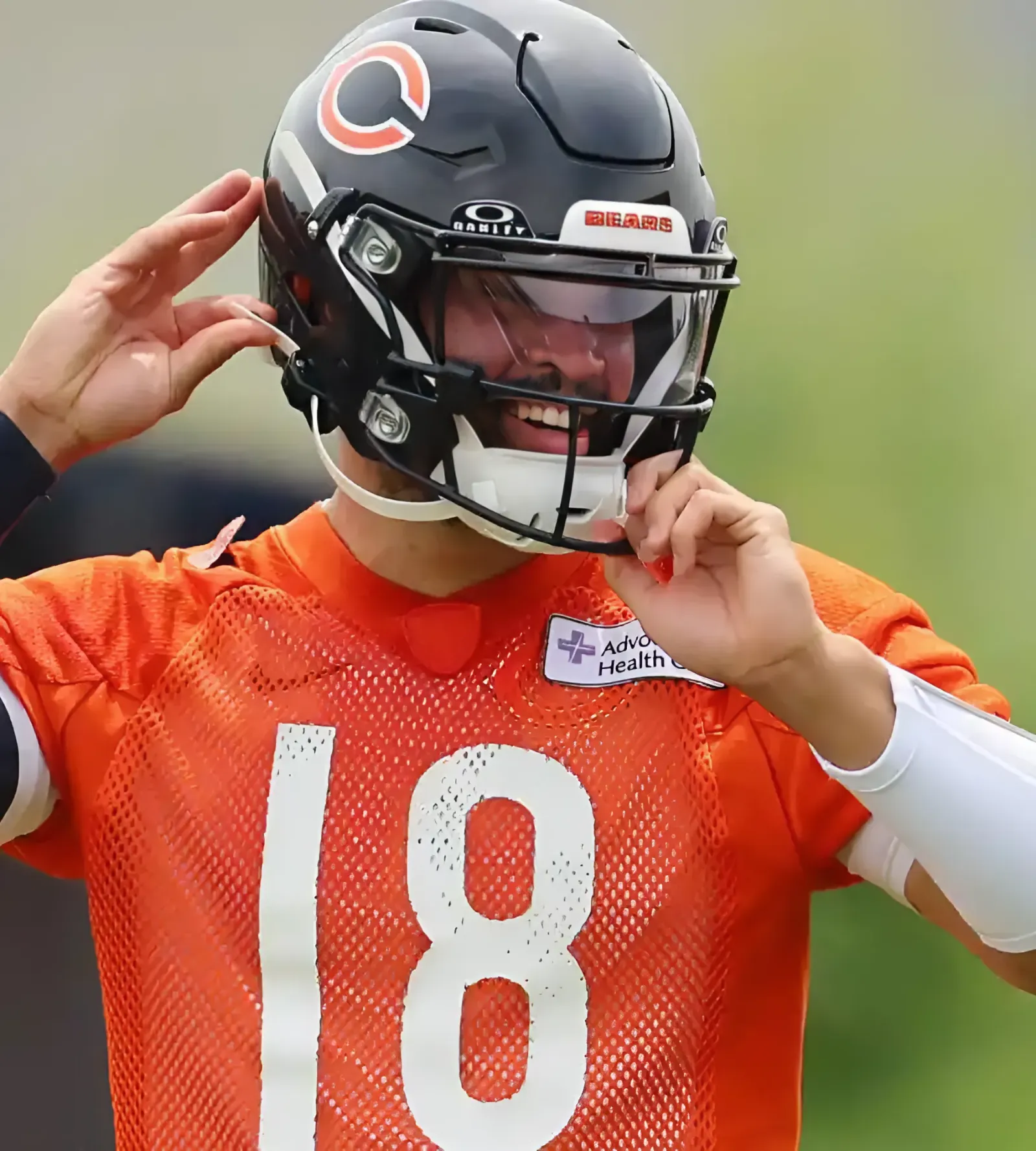Titans QB Will Levis has arm and surrounding talent to make a big leap
Will Levis enters his second NFL season as somehow the oldest quarterback in a suddenly loaded division of signal-callers in the AFC South. He remains a young and mostly unproven player.

Levis, a former second-round draft pick, enters the 2024 season attempting to answer the question of whether he can be the long-term solution for the Tennessee Titans. And when you consider the Titans' pieces and look at the recent moves the franchise has made, the 2024 Tennessee offense is a more promising situation than most young quarterbacks are plopped into.
Look at it all from a narrative sense:
-
An offensive-minded head coach
-
A veteran group of pass catchers, including three wide receivers with complementary skills
-
An investment into the offensive line through the draft with two recent first-round selections on the left side
-
A free agency splash with a center receiving the second-most practical guaranteed money for his position ever
-
And the cherry on top includes one of the most respected offensive line coaches in football to bring that o-line sundae together
While the offensive-minded head coach, Brian Callahan, is unproven as the captain of his own ship, most of the other characters have their sea legs in NFL waters. DeAndre Hopkins, who turns 32 when this article comes out (happy birthday, DeAndre!), still looked as effective as ever in 2023 as he topped the millennium yard-mark again. Calvin Ridley, who was affected by the Jaguars' fragile offensive ecosystem, has the traits and route-running chops of a featured No. 1. Tyler Boyd is a steady and consistent option working over the middle who does his best job underneath and at the intermediate levels.
| Player | Yds | Y/G | Tgt | Rec | TD |
|---|---|---|---|---|---|
 D. Hopkins
TEN - WR |
1,057 | 62.2 | 137 | 75 | 7 |
 C. Ridley
TEN - WR |
1,016 | 59.8 | 136 | 76 | 8 |
 T. Boyd
TEN - WR |
667 | 39.2 | 98 | 67 | 2 |
The center is Lloyd Cushenberry, a strong, smart and steady presence in the middle of the offensive line who will give a boost to the rest of the unit and take the mental load off of Levis. And the offensive line coach is Bill Callahan, who has a reputation as one of the best assistants in the league.
This could be a better situation than you’d assume at first glance. And Levis has a chance to solidify himself as the guy in Nashville because of it.
Levis did not start his rookie season. And his first extended playing time — a Week 8 mortar launch bonanza against the Atlanta Falcons — came only after a botched snap on the fourth play of the game involving the actual starter Malik Willis, who was replacing an injured Ryan Tannehill. I'm assuming then-head coach Mike Vrabel had a short leash for young players.
The result of Levis’ first stretch in the NFL ended up with him throwing four touchdown passes, which included several impressive launches down the field:
That performance against the Falcons, which echoed his style in college at Kentucky, was a harbinger of Levis’ play for the rest of his first NFL campaign. No quarterback averaged a higher depth of target in 2023 than Levis’ 10.6 yards, the highest mark for any qualifying QB since Josh Allen’s rookie year number of 11 in 2018; Jameis Winston finished in second that year at 10.8 yards. C.J. Stroud, who ranked second with an average depth per target of 9.0, was closer to the quarterback who ranked 20th, Aidan O’Connell, than he was to Levis’ mark (more on Stroud and the other second-year quarterbacks in the weeks to come).
Levis continued to attack downfield as he took over the Titans' starting position, and the Titans' coaching staff focused on that preference. Tennessee featured plenty of play-action concepts with Levis in 2023, often with heavier protections with fewer players out on the route concept. That helped (sometimes) shore up the Titans' overmatched offensive line, while also narrowing the focus of Levis’ progression. And Levis had some bright moments when he was given some breathing room in the pocket, particularly in Week 15 against the Texans:
While Levis’ seemingly lackluster final year at Kentucky impacted his draft stock, which dropped Levis out of the first round entirely. One silver lining of that 2022 season was that Levis was often put in tough situations because of his mediocre offensive line and pass catchers. Injuries happen in the NFL, glaring weaknesses on the roster, too. Showing that you can operate when everything else is less than ideal or goes askew can help translate and speed up some of the learning process for young quarterbacks (as long as bad habits haven’t been formed yet).
Even in that porous offensive situation, Levis showed comfort in turning his back to the defense on play-action concepts, a willingness to stand and deliver throws, and an aggressive mindset to keep pushing the ball downfield, especially under his junior year offensive coordinator Liam Coen in 2021 (Coen is now the Tampa Bay Buccaneers' offensive coordinator. His replacement, Rich Scangarello, was fired midway through the 2022 season. That added to the tough final college season for Levis).
Any offense with Derrick Henry at running back is going to be run-centric, but Levis created more breathing room with his downfield-focused brain. Levis has excellent arm strength and a quick throwing motion that opens up the entire field to attack. He will maneuver in the pocket and try to find throwing lanes, with a willingness to take hits. He has a bit too much willingness, though, with his magnetism for contact as a runner and desire to hang in the pocket resulting in the inability to play or finish several games after taking over as the starter.
Levis will also accumulate hits because of his almost Jeff Georgeian-like approach to his arm talent. Why anticipate when I can wait an extra second to confirm what’s open and then fire?
Levis will often wait an extra half-second to clear up what he is seeing before finally releasing the football. It is something he gets away with because of his arm talent. It's something he will need to speed up to keep taking his game to a higher level and also save his body for the long term (the best ability is availability, remember).
Levis’ aggressiveness and tendency to hold onto the ball will always make him prone to higher sack rates (his rate of 9.9% ranked 25th among 32 qualifying quarterbacks), but he attempts to create explosive plays to help neutralize some of the damage those sacks create. Levis is also a good athlete and has a quick-throwing motion style that also allows him to mitigate pressure and get rid of the ball around clean pass rushers. He had to do that often at Kentucky and in his first year with the Titans.
There is a lot of arm talent on these plays. Like, a lot, a lot. Levis’ arm strength is in the upper echelon of NFL quarterbacks. Whether we’re discussing strength in terms of throwing distance or firing the ball through a wall, Levis has oodles of it. Here he beats a tight red-zone coverage and almost takes off Chigoziem Okonkwo’s hands like The Toadie in "Mad Max 2."
Here he moves in the pocket and hits Hopkins with anticipation and ideal ball placement. With that quick throwing motion and arm strength again featured:
And Levis doesn’t need a large platform to launch from. His operation includes a short step with his front foot. He can also change some of his arm angles to create throwing lanes on underneath throws and doesn’t lose much arm strength on stuff further down the field. It’s impressive stuff.
The Titans had big training wheels in place to help out their offensive line and Levis. Play=action concepts are very effective but also puts the quarterback on rails and limits the offense's scope. As Levis started to get more snaps under his belt, he showed more comfort with concepts featuring “true” dropback footwork and progressions. Here is a great example against the Dolphins where Levis keys the backside safety to then progress to Okonkwo on his dig route.
The Dolphins are in a Cover 6 variety with a Cover 2 coverage to the 3 receiver side at the top of the screen and a version of quarters coverage on the bottom of the screen (two plus four equals six, get it?). When the receiver aligned in the No. 3 spot releases vertically, which on this play is Hopkins (circled red), the safety on the quarters side, Brandon Jones (circled yellow), will push (or poach) over to provide support in coverage over the top.
On plays featuring a backside dig like this one with Okonkwo, quarterbacks are taught to see if that safety pushes over (like Jones does here) and replace the area with the dig route. It’s a post-snap confirmation read for the quarterback and here’s Levis pulling it off when he could opt for an easier (and less rewarding) answer to the 3 WR side.
Every quarterback has a comfort level with certain plays more than others, and Levis is not excluded. On straight dropback plays it is apparent which plays Levis has experience with. Like this mirrored "stick" concept that is a Day 1 installation play for offenses at all levels. Levis calmly works from outside-in to Henry on the checkdown over the ball, beating T.J. Watt after another failed cut block from a Titans offensive tackle.
On plays that Levis has limited experience or when operating down the field, he has a tendency to lock in on his target. More often than not he will still get the ball to its destination because of that arm talent and his willingness to work in the pocket and let routes win. But there are times when he can still make throws harder than they have to be. He will wait that extra half-second and let defenders close on routes. Or an overexaggerated pocket movement will create a more difficult throw than needed, with his body launching across the pocket as he tries to replicate the drillwork he does with his coaches in practice, resulting with his feet out of whack and in unorthodox launch points, late throws and tighter windows.
This isn’t an entirely damning trait. And Levis is still able to find production despite his tendency to lock on. And toning down aggressiveness is an easier ask than trying to draw more bite out of timid quarterbacks. It’s a double-edged sword with Levis and his willingness to chuck it; he is willing to take on a lot of water, more than most, to let his cannon go off. That can lead to drive-ending sacks and frustrating short drives if a few of those throws don’t connect. The hope is that there are enough explosive plays and in-between effectiveness to offset the boom-bust nature of this style, and that the Callahan contingent will be able to shore up the rough edges of this type of attack. It’s always going to be present in any offense that Levis is stewarding. The plays where Levis is finding checkdowns and progressing on straight dropback concepts are the plays that are the most encouraging for his long-term success, even as much as the arm talent and jaw-dropping downfield throws. But the frequency in which we see that steadiness will need to increase as 2024 goes along.
Again, the Titans, to their credit, have put plenty of pieces around Levis to try and get a long-term answer at the position. The receivers make sense. The tight ends are solid (not only the explosive Okonkwo but Josh Whyle had some nice stretches in limited snaps before finishing the season on injured reserve) and the run game can at the very least be effective because of the coaching and pieces up front and in the backfield.
Levis is still an enigma and there are dichotomies throughout his profile. He was a bit older as a prospect and still a more project-type of player. He has been well-coached in terms of his mechanics, but then has a wild horse mentality that will scramble and take on the entire defense by himself. He has a gunslinger arm but plays rigid and mechanical at times. Throws get on receivers a beat quick but he releases the ball a beat slow. But, after reviewing his starts from 2023, I can understand why the Titans' brass wants to see what they have with Levis for the future. If he can continue to speed things up mentally and make life easier on himself, especially in a theoretical more advantageous situation, then there are a lot of high-end traits for Callahan and offensive coordinator Nick Holz to work with. That gives another talented signal-caller for AFC South defenses to play against twice a year.



